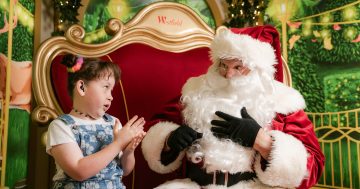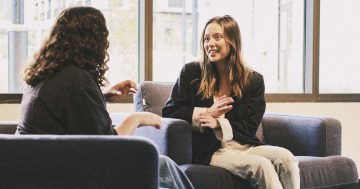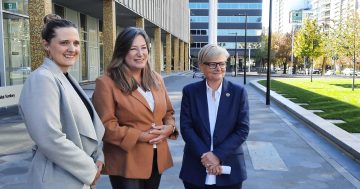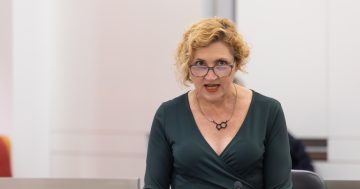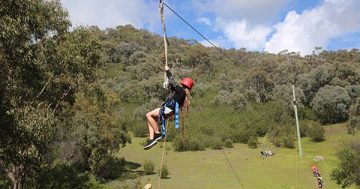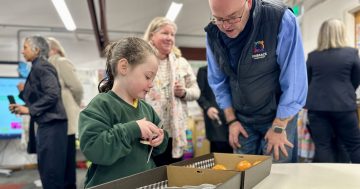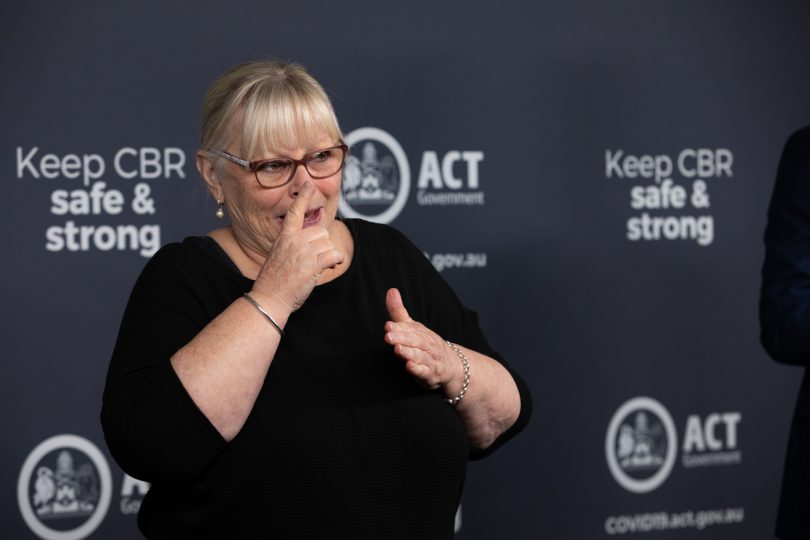
Mandy Dolejsi appeared before the committee hearing inquiry into the availability of Auslan services in the Territory. Photo: Thomas Lucraft.
Deaf Canberrans have called on the government to set up a specialist school or unit with Auslan as its first language.
It’s a move they say will boost the sense of community and wellbeing for deaf children – and their access to language.
Parents of deaf children, deaf advocates and teachers of the deaf have spoken of their experiences during a committee inquiry into the provision of services and information in Auslan across the Territory.
Mandy Dolejsi, who is married to a deaf man and has worked in the education system, said children were being left without “their village” for years – and it was having a detrimental effect.
An interpreter at COVID-19 press conferences during the pandemic, Ms Dolejsi said what other advocates described as “mainstreaming” was in fact segregation for deaf children.
“It does not work. Our deaf kids need access to other deaf kids for their own mental health, their own education,” she said.
“Without that peer group support, our deaf kids have a high risk of mental illness … and they are just not achieving.”
Qualified teacher of the deaf, Kellyanne Rosalion, said her deaf seven-year-old daughter was currently supported in her local public school by a communication assessment and “hearing support teacher” – a term she disliked.
“[My daughter] is not getting help with hearing in the classroom, she is getting help with learning because she is deaf and needs extra support to learn,” she said.
Ms Rosalion, who is also deaf, would like to see a specialised school set up to help grow community and connection.
With English as her first language, Ms Rosalion didn’t take on Auslan as a child. But because she and her husband learned the sign language at university, their daughter has had access to it from birth.
While the couple’s daughter is doing well academically, she gets tired at school and during after-school activities.
Ms Rosalion, a facilitator of an Auslan playgroup and employee of the Parents of Deaf Children organisation, said every child must be able to access their language.
She said the Territory’s lack of services was “failing deaf children and their families”.
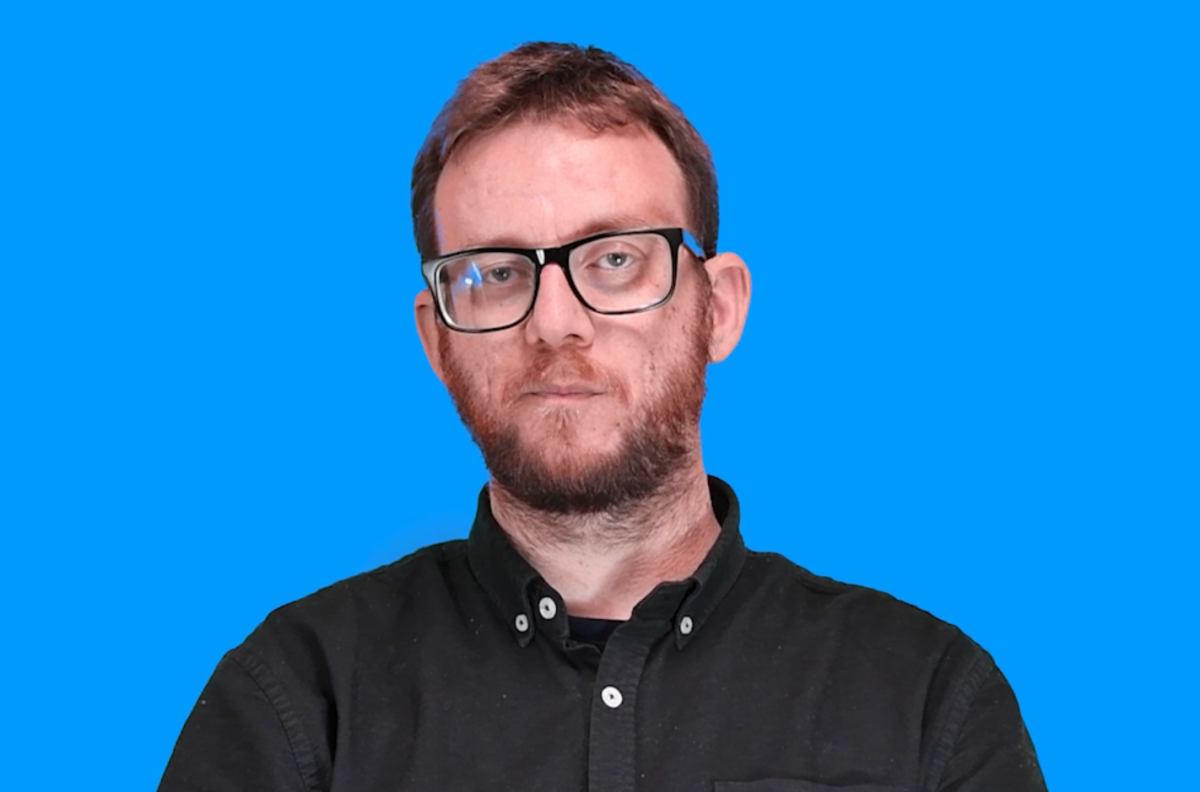
DeafACT president Jacob Clarke has detailed his experience as a deaf person accessing services in the Territory. Photo: DeafACT.
.President of not-for-profit DeafACT Jacob Clarke said a specialist school would provide “great social and emotional” benefits.
But he warned the curriculum must be equal to that of mainstream schooling.
Mr Clarke’s parents famously took the Catholic Education Office to court after he was denied access to an interpreter at the age of 12.
He told the hearing about the difficulties of being at a mainstream school. In some cases, his interpreter was only available until lunchtime.
He was then given a pile of notes for the afternoon’s lesson.
“The expectation was that I would be okay,” Mr Clarke said. “But English is not my first language. Auslan is.
“I would have to ask my friends for help and they shouldn’t have had to carry that burden.”
Laisarn Leong – also deaf and a teacher of the deaf – agreed.
She held concerns for deaf children who went through mainstream schooling feeling isolated and often without deaf role models.
Ms Leong, who didn’t find the deaf community until she was in her 20s, said a dedicated school would help mitigate some of these feelings.
These calls for a specialist school came despite a recent inquiry into school infrastructure conducted by the same committee. It heard from other disability advocates about the need to move away from separating children with disabilities from their peers.
A spokesperson for the ACT Education Directorate said there are no current plans to establish a specialist school for students who are deaf or hard of hearing.
“All students with disability are welcomed and encouraged to attend their local school with their siblings and neighbours,” they said.
“Targeted support is provided to students who are deaf or have a hearing impairment across all schools.”
The directorate said it employs hearing support teachers who visit schools to work with about 100 students who are deaf or hard of hearing and can provide Auslan interpretation, which is currently taken up by two students full-time and a further 10 students part-time.












